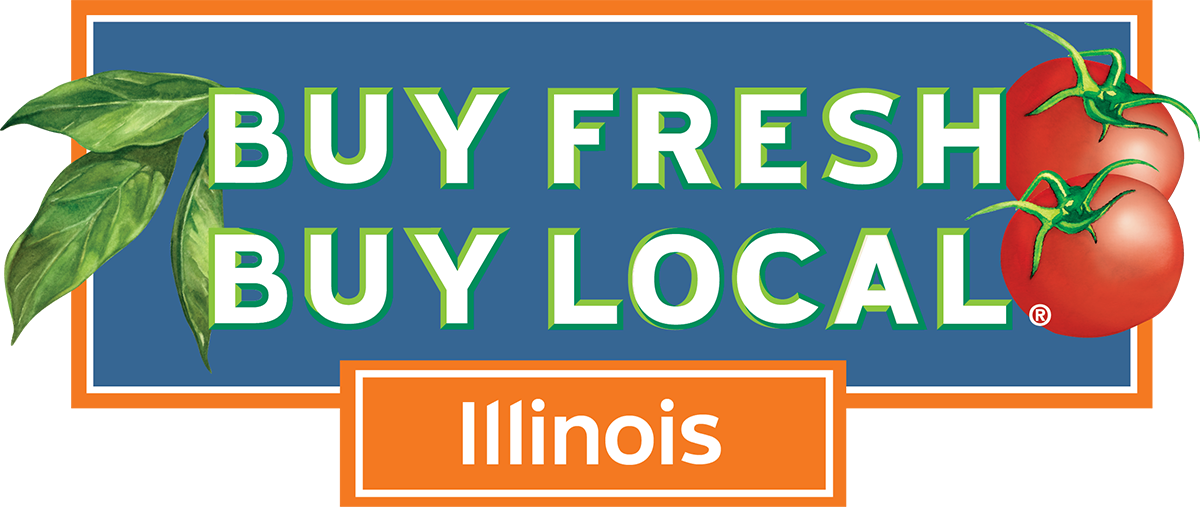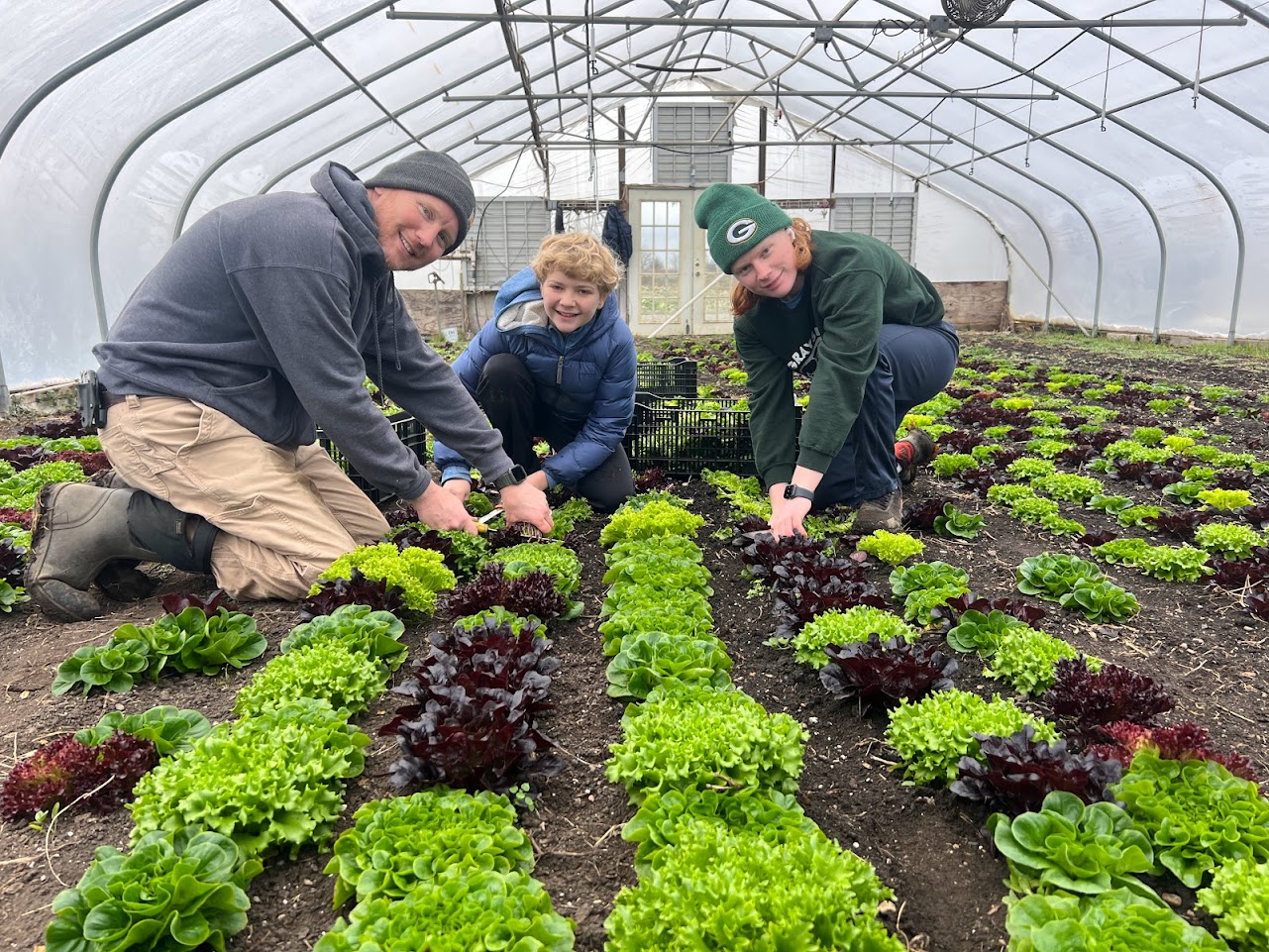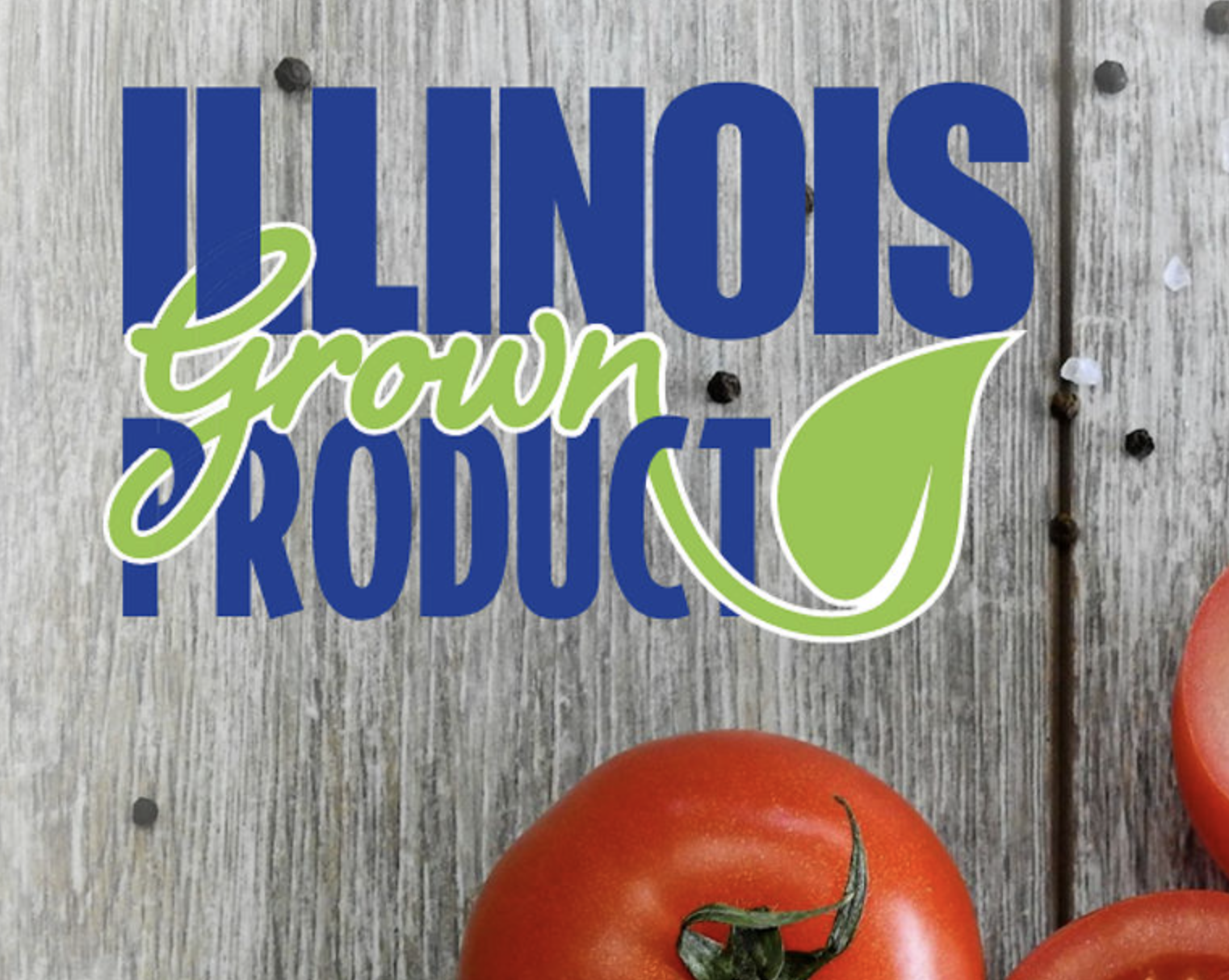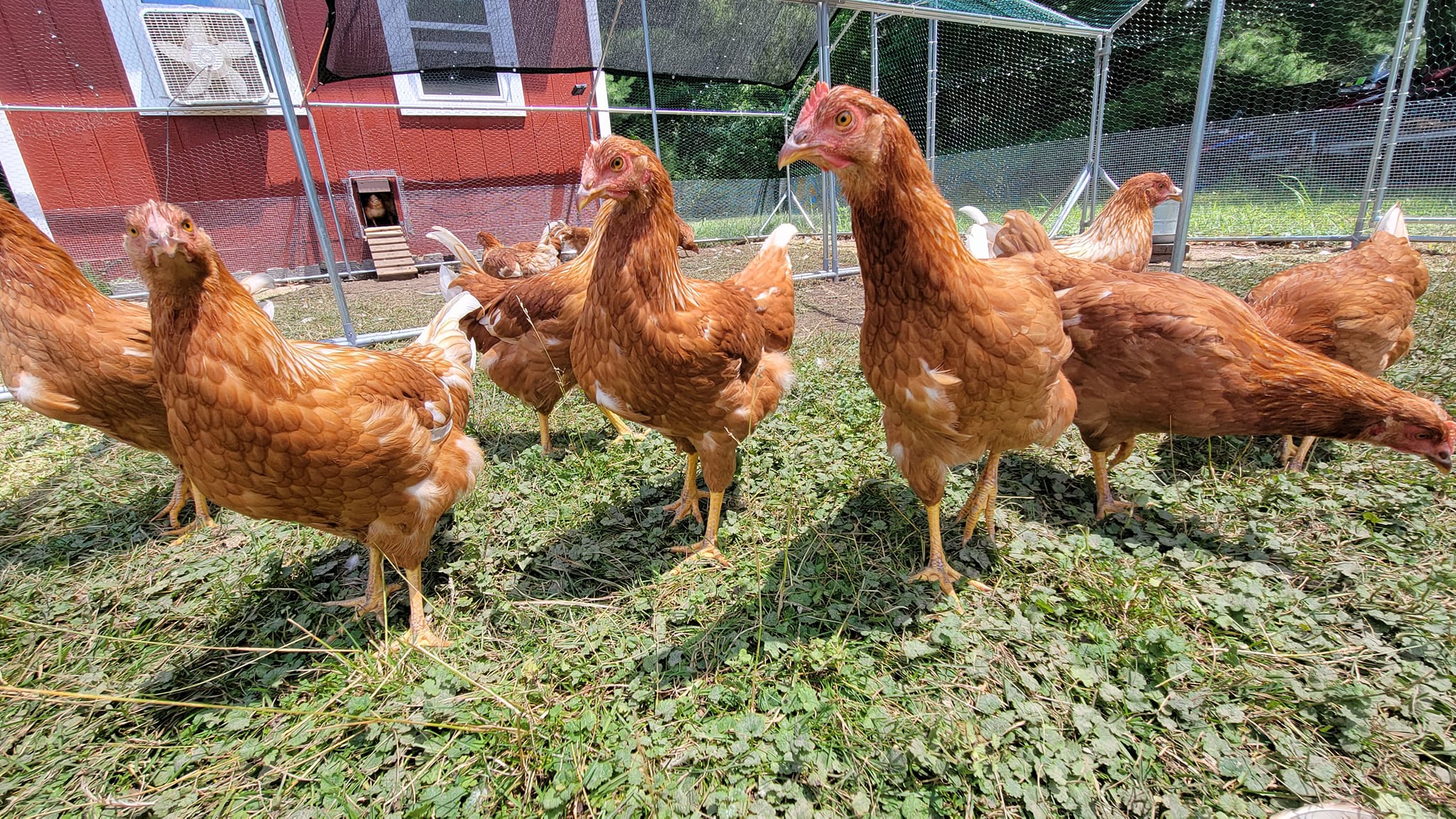
Four ways to beef up (pun intended) your shopping list to include more pasture raised meats
Pastured meat is easy to find in the winter months and purchasing in January helps support farmers all year round. In recent years, the farmer’s share of the food dollar has dropped to just 14 cents for every dollar you spend, making it harder for farmers to earn a living. When you buy directly from local farms, you’re ensuring they get every penny and can keep producing local products to help sustain you and your community.
As we start a new year, you may be thinking of additional ways that you can eat a more healthful diet while supporting your local food economy. One way to do this is to eat more pasture raised meats. Sounds like a great idea, but for many people it may be intimidating to know what is what when it comes to local meat. In this month’s blog post, we offer up four ways to beef up (pun intended) your shopping list to include more pasture raised meats.
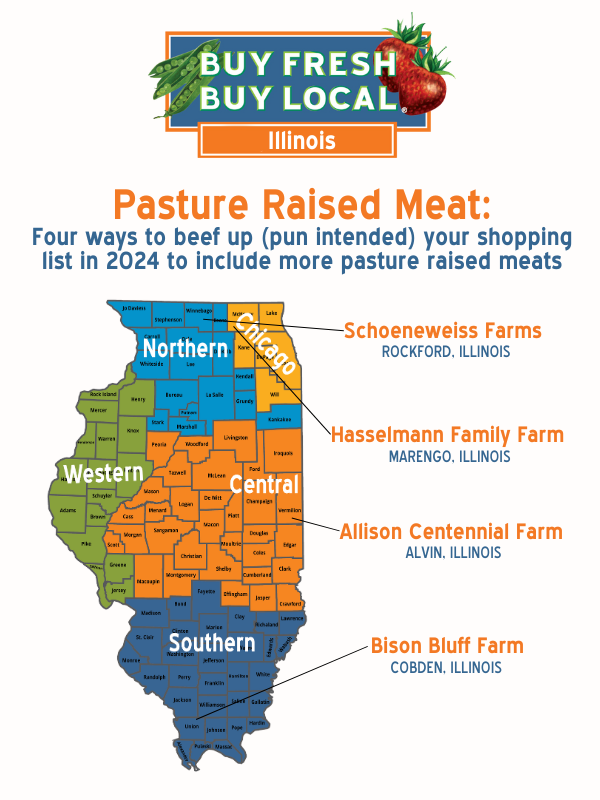
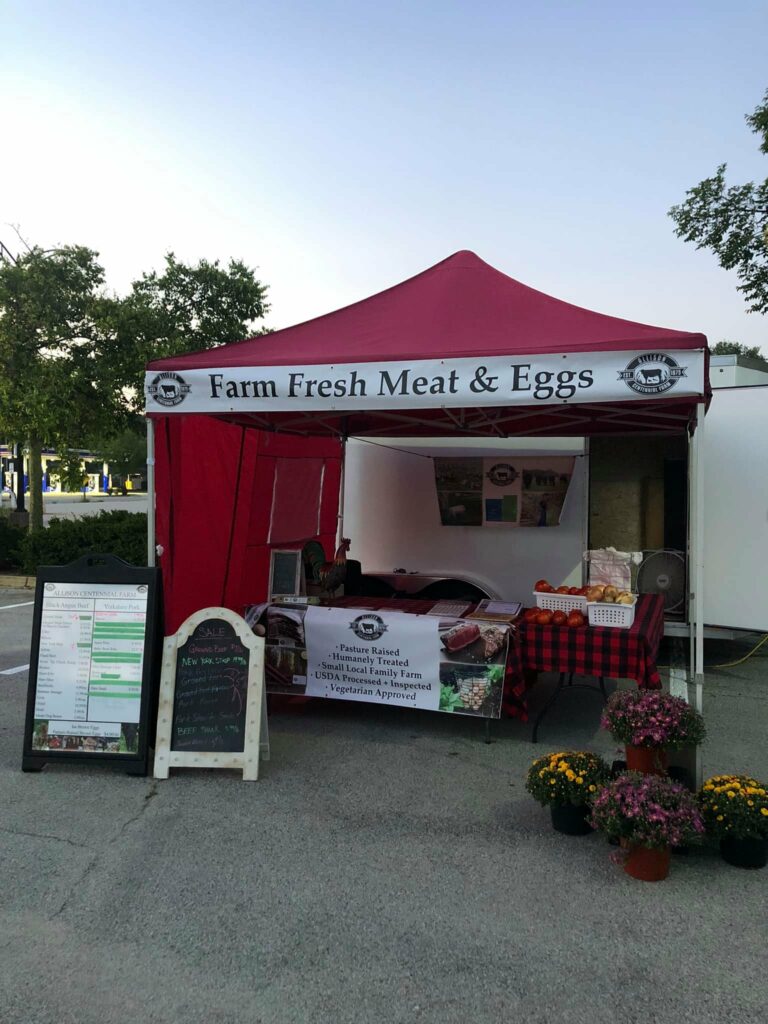
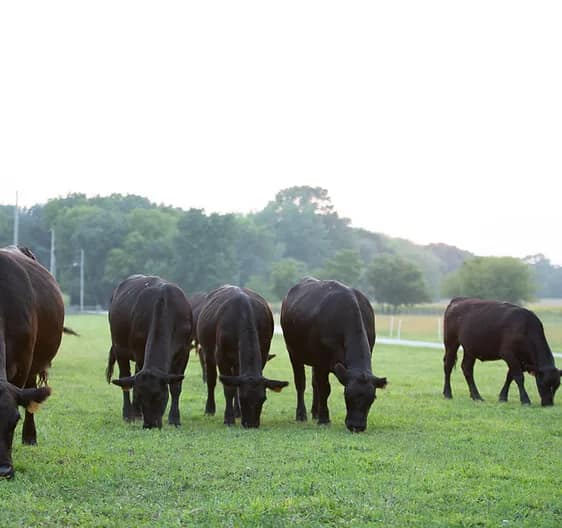
Pastured meat is easy to find in the winter months and purchasing in January helps support farmers all year round. In recent years, the farmer’s share of the food dollar has dropped to just 14 cents for every dollar you spend, making it harder for farmers to earn a living. When you buy directly from local farms, you’re ensuring they get every penny and can keep producing local products to help sustain you and your community.
As we start a new year, you may be thinking of additional ways that you can eat a more healthful diet while supporting your local food economy. One way to do this is to eat more pasture raised meats. Sounds like a great idea, but for many people it may be intimidating to know what is what when it comes to local meat. In this month’s blog post, we offer up four ways to beef up (pun intended) your shopping list to include more pasture raised meats.
Pasture raised packs a meaty flavor
When you transition to using pasture raised meats in your favorite dishes you may notice the meat has a meatier and richer flavor than similar cuts of meat you may have purchased that do not come from a pasture raised animal. The reason is because the animals were pasture raised. Pasture raised means that the animals spend a significant portion of their lives in open areas. As you begin purchasing more pasture raised products (meat, poultry, dairy, or eggs), it’s important not to rely on the “pasture raised” labeling alone. Look for additional labels that indicate that meaningful standards for access to pasture were met, and speak with the farmers your purchase from to learn more about their farming practices. The great thing about purchasing local products is that you often have direct access to the people who were involved with growing your food!
If you enjoy eating beef, we suggest starting your journey into pasture raised products with a winter warmer, and try your hand at cooking up a cut of beef like a chuck roast or beef ribs. Both start with a braise, or in other words, pan searing on the stove over high heat, then lowering the heat and adding butter or garlic to the pan to finish cooking. Along the lines of winter warmers, if you’re looking for comfort food during the long cold days of January, look no further than this luscious red wine braised beef short ribs recipe. You can easily use one of Allison Centennial Farm’s pasture raised beef short ribs. Located in Alvin, Illinois, Allison Centennial Farm is a small, family and veteran-owned farm. Their beef and pork are humanely raised, antibiotic-free and grass fed/grain-finished. You can shop for Allison Centennial Farm products at the Champaign-Urbana Farmers Markets, at the Urbana and Bloomington food co-ops, and other locations across Central Illinois.
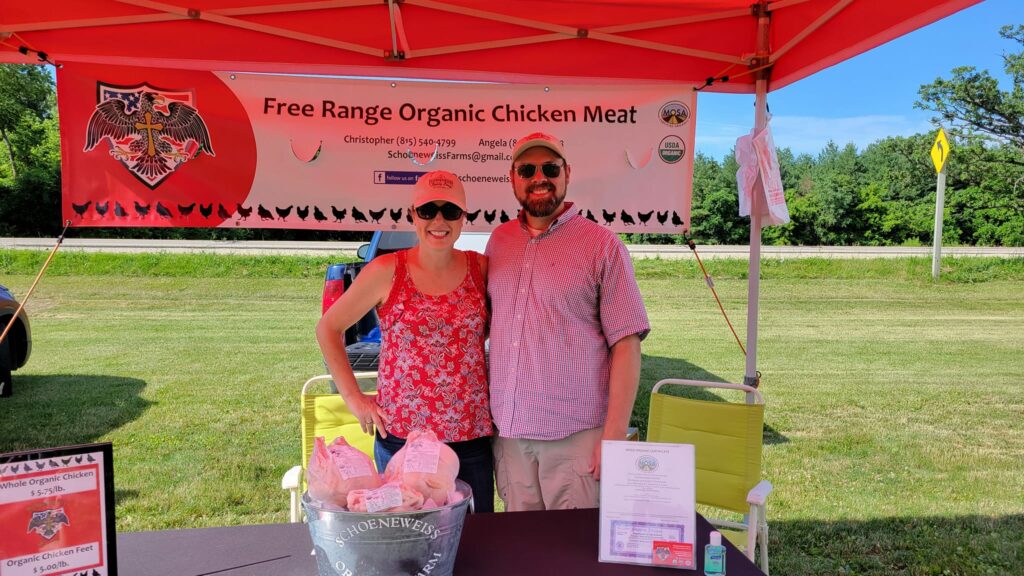
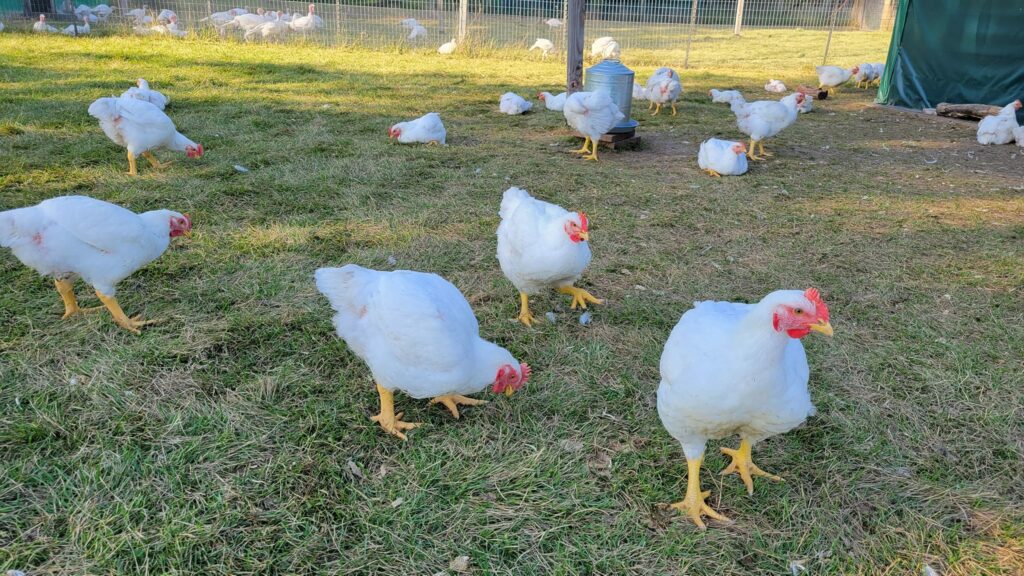
Be open to trying something new
One thing you’ll notice right away about shopping for pasture raised meats is that the farmer offers products from nearly all of the animal. For folks who are used to shopping for traditional cuts of meat, you may not be used to seeing things like tongue and feet for sale. Don’t shy away from items like this! Especially chicken feet! According to Shoeneweiss Farms, chicken feet make a great bone broth! They note that “Feet are a great source of collagen which help with joints, nails, and skin.”
Have you ever made bone broth? January is a GREAT time to start a bone broth adventure, and make some of this nutrient-rich broth to nourish your family during the cold, winter months. Mother Earth News offers a simple recipe for making your own bone broth, featuring local ingredients like chicken feet from Schoeneweiss Farms, leeks, carrots, thyme, onion, celery, onions, and parsley.
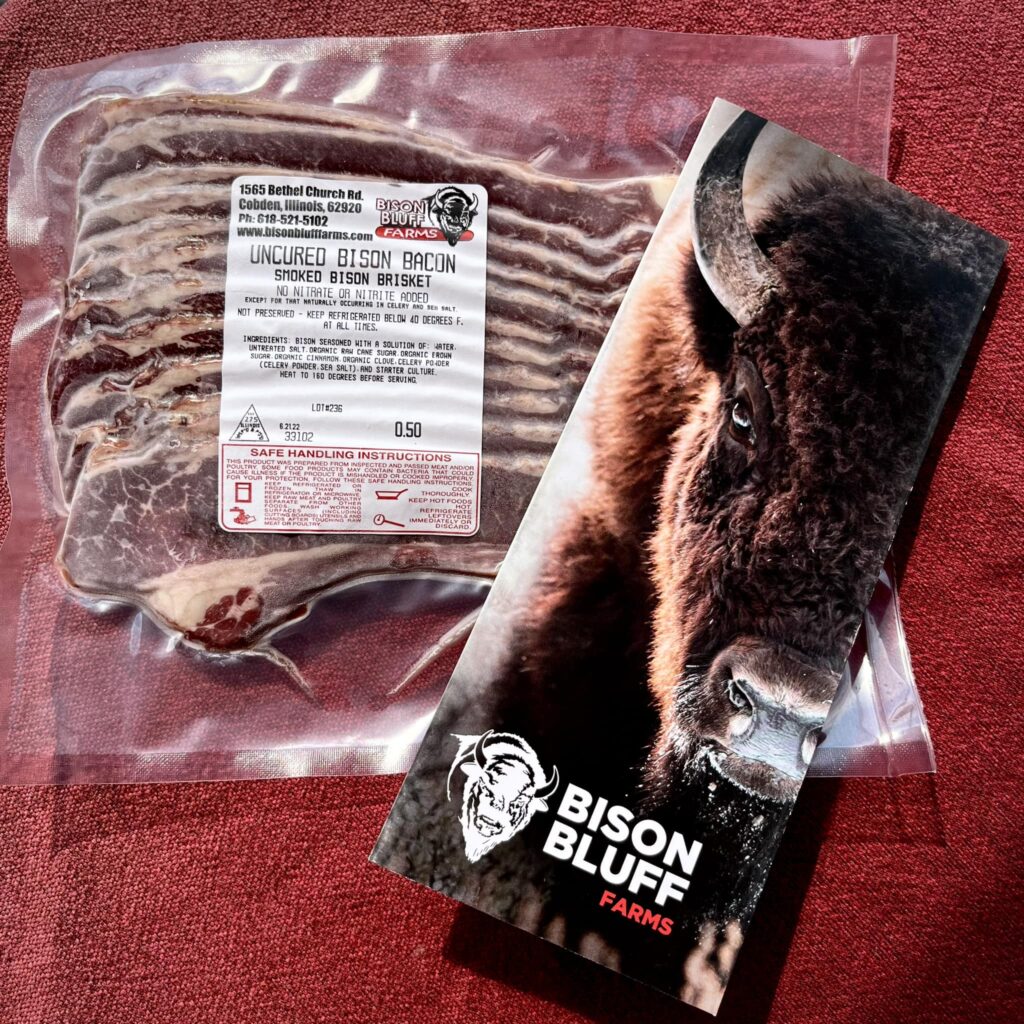
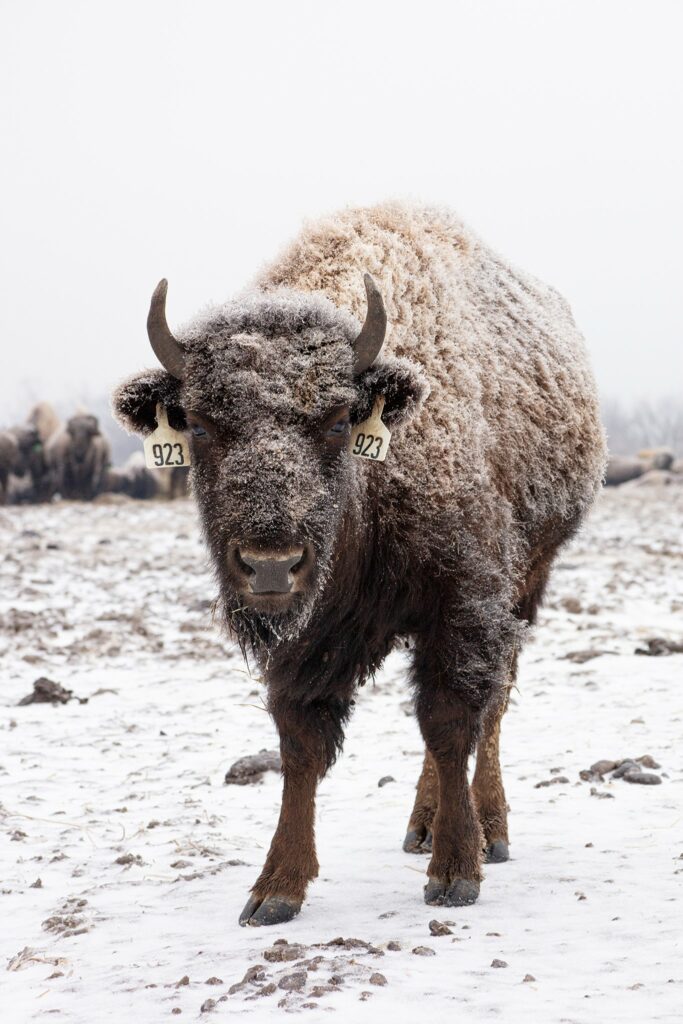
Buffalo or Bison?
One of the leanest cuts of meat available is bison, and lucky for you, there are some fantastic bison farms in Illinois offering up meat for order online and at your local farmers market. Bison Bluff Farm, located in Cobden, Illinois, is one such farm. “As a denser meat, bison satisfies hunger faster with lower fat and cholesterol than even turkey,” shares Bison Bluff Farm’s website. Gaining in popularity for its rich, meaty flavor, nutrient density and lower fat content, bison is quickly becoming a freezer staple.
One frequently asked question to many bison farmers is, “what is the difference between a buffalo and a bison?” Bison Bluff Farms breaks it down for us.
“The American buffalo is not a true buffalo. Its closest relative is the European Bison or Wisent and the Canadian Woods Bison, not the buffalo of Asia or Africa, such as the Cape Buffalo or Water Buffalo. Scientifically, the American Buffalo is named Bison and belongs to the Bovidae family of mammals, as do domestic cattle. Because our history has so ingrained us with the name “Buffalo,” we still use it, although “Bison” is the true term to use.”
If you’re overdue to taste the lean but juicy flavor of bison, now is the time! From burgers to brats, and bacon to steak, Bison Bluff Farm offers a beautifully curated online store that will have you hitting the “purchase now” next to every item they offer. Check it out for yourself here.
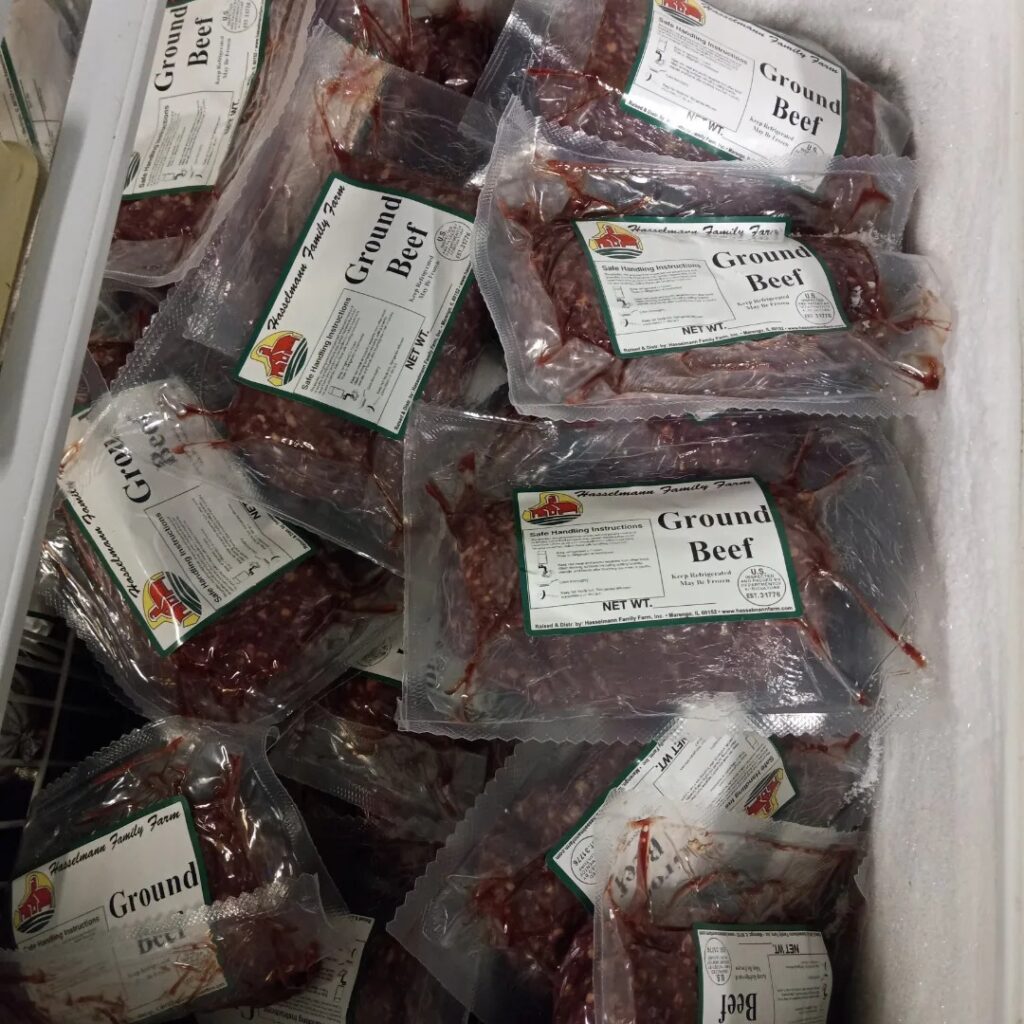
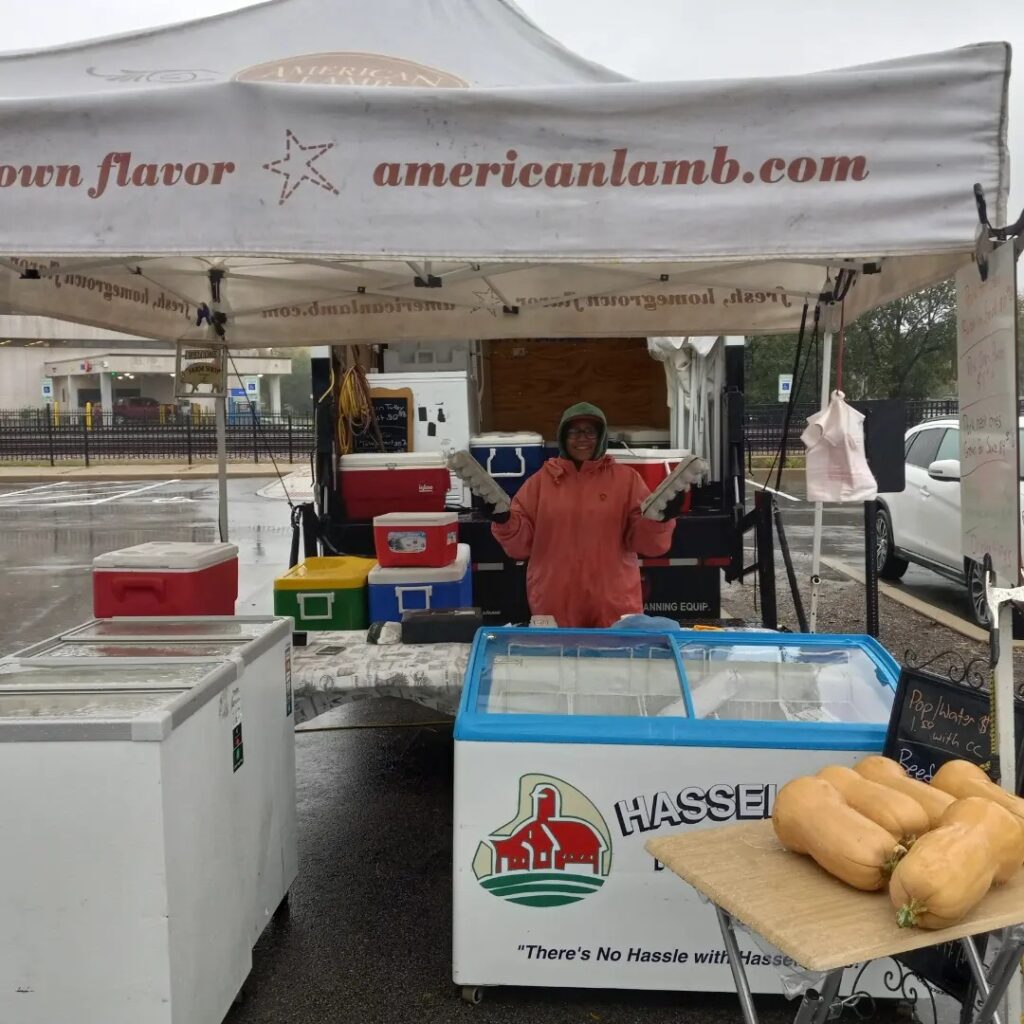
Bacon Me Crazy: What’s the difference between types of bacon?
When you start shopping locally for breakfast meat staples, like bacon, you may notice there are a lot of varieties to choose from. Cottage bacon? Jowl bacon? What is the right choice for me?
To answer this question, we turn to Hasslemann’s Family Farm out of Marengo, Illinois. “Traditional bacon comes from the pork belly and is smoked. Cottage bacon comes from the pork shoulder, but is smoked and sliced like bacon. It is leaner and meatier than bacon. It also comes in larger slices, making it a great option for amazing BLTs and sandwiches. Jowl bacon comes from the cheek of the animal, and is also smoked. The slices are smaller, and thinner, and are less lean than regular bacon. The fat rendered is very creamy and rich, which makes it a great option for pasta carbonara, spinach salad with bacon vinaigrette, or any other preparation where you would like to use wonderful rich bacon fat along with crisp bacon!”
If you find yourself achin’ for some bacon after reading this, then check out the Hasslemann Family Farm online store. Browse their Pasture Raised Berkshire Pork products, in addition to lamb, poultry, eggs, bulk packages, and more!
Want to find more pasture raised meat in your area? You can find pastured meat farmers near you at www.buyfreshbuylocalillinois.org. Just use the filters to search by proximity, product, and farming practice.
Get Listed with Buy Fresh Buy Local Illinois
Are you a farm, farmers market, farm-to-table restaurant, or grocery store that sells local products purchased directly from local farms? Get listed in Illinois’ most trusted guide to local food. Your listing is absolutely free. Buy Fresh Buy Local Illinois is a local foods marketing project led by a coalition of organizations across the state working to promote local farms and food businesses like yours. Get listed and start reaching new customers today!
